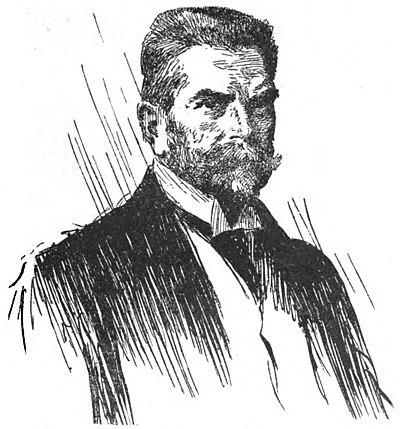hostile to the state, but actually tended to interfere with successful conduct of the war in a military and economic sense.
The judgment further declares that it has been proved that long before the war individual Bohemian statesmen, especially Kramar, under the guise of NeoSlavism used Slavic congresses and similar occasions to create and keep alive a movement that discussed Slavic reciprocity and cultural and racial aims, but actually developed treasonable designs, the true aim being the separation of Czechoslovak lands from the monarchy. The military court is convinced that this movement in which the defendant Kramar participated as one of the originators, organizers and leaders and in which the defendant Rasin participated only distantly, must be considered the principal cause and the real root of all the military and treasonable events at home and abroad, in the interior and at the front.

DR. KAREL KRAMÁŘ.
This causal connection which even the war did not interrupt between the aforesaid events and the accused can be traced especially from the following circumstances:
1. As far as revolutionary propaganda in foreign lands is concerned, it has been proved that the defendant Kramar maintained relations with editors, propagators and publishers of the treasonable periodicals abroad, especially with Brancianinov, Bobrinsky, Denis, Masaryk, Pavlu, Propper and others; that he was contributor to the “Novoje Zveno” newspaper which before the war and after the war openly demanded the destruction of the monarchy and specifically stated so on the title page. It is to be noticed that there exists remarkable agreement between the ideas, aims and phrases of the accused, of these treasonable publications and of the “Národní Listy.”
2. Dr. Kramar used the Národní Listy” as the herald of his politics and controlled its tendencies. Rasin also took part in this as contributing editor, although his activity was exerted in the economic and financial field and remained far behind Kramar’s ac-
